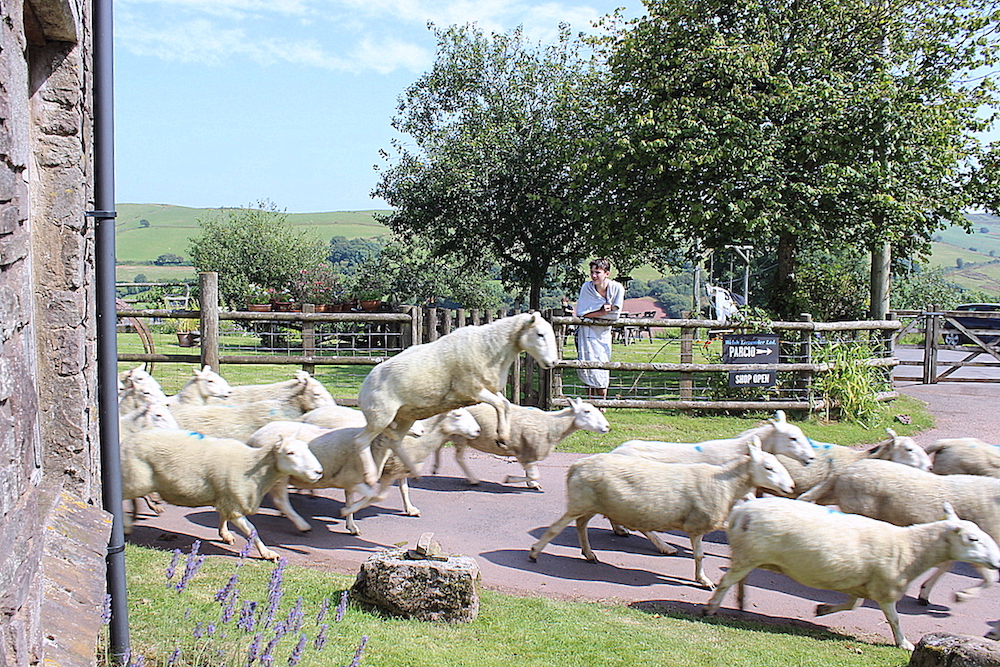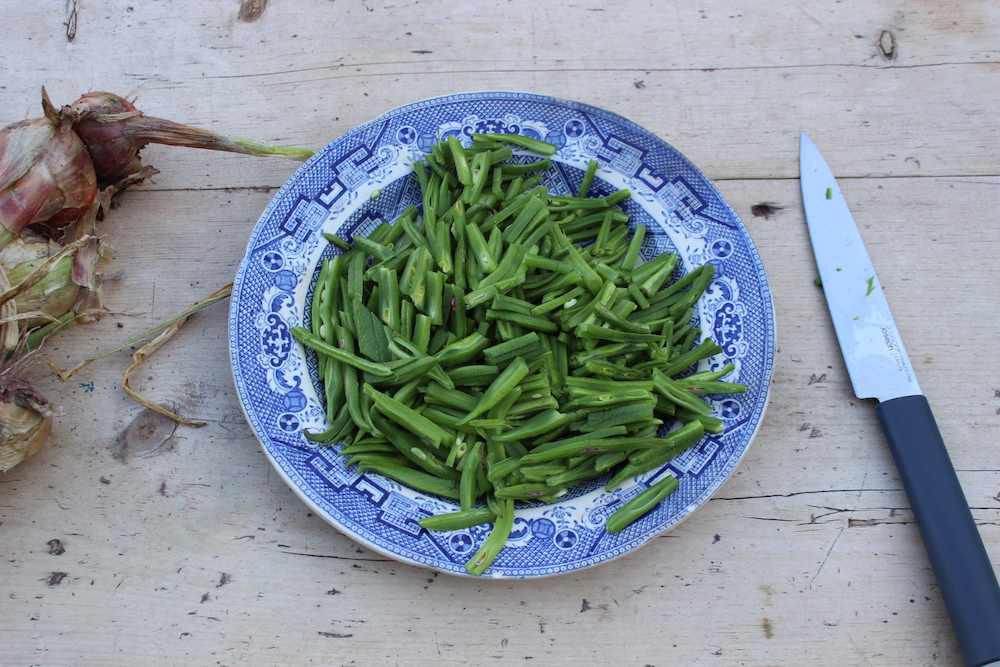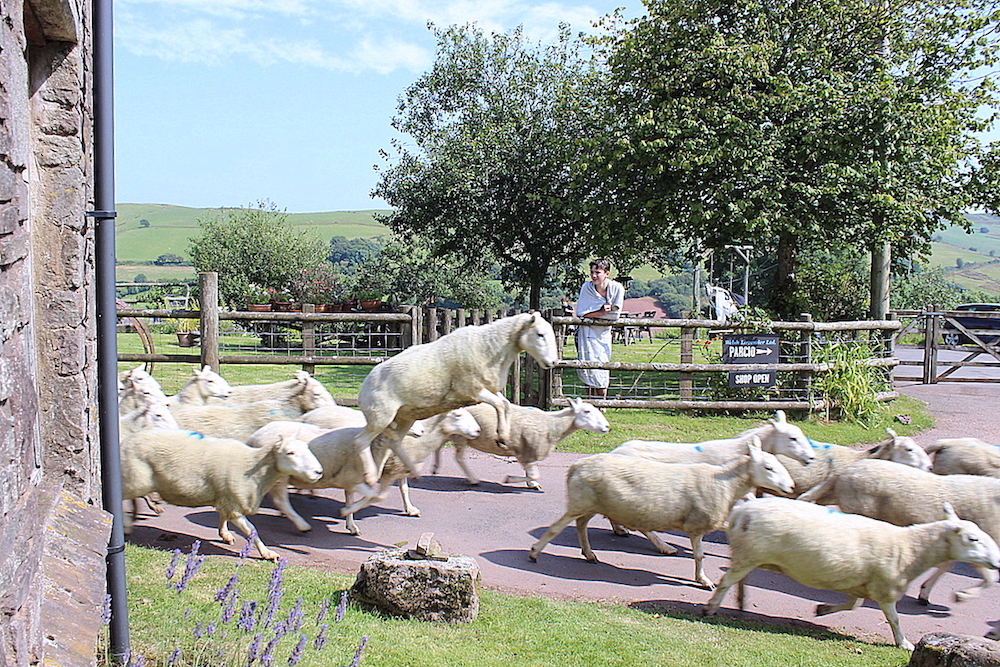Malcolm Jolley has watched the good food revolution unfold in Britain.

We had some visitors after lunch.
In 1996 my girlfriend convinced me to max out my credit card for a return ticket to London Heathrow. It was reading week at our law school, and since we had been dating for two years, she had decided that it was time for me to see where she grew-up. Her father picked us up at the airport and took us to Oxford, where he lived his wife in a sort of small castle. Then we headed west to and across the Welsh border to Cefnperfedd Uchaf, a stone farm house just north of the Brecon Beacons and on or two valleys over from the River Wye.
Lucky for me, the girlfriend kept taking me to Wales, although there have been some changes: the girlfriend became my wife and Bill and Nancy are (some of) our children’s grandparents. We come to Wales every year for a holiday, and we live well. A big part of that is, and has been for 20 years eating well. What’s interesting to me are the changes I have seen in food available to us over the last two decades. Visiting intermittently has given me a different perspective on the food scene in Britain than at home in Canada. It’s a bit like when I only occasionally see my friends’ children and are surprised by how much they have grown, whereas my own I barely register their slow changes under my nose.

Runner Beans from the Garden at Cefnperfedd Uchaf.
The first change I have noticed has happened right here on Cefnperfedd Uchaf farm, which is Bill’s vegetable garden and fruit cage, which in summer supply 99% of our produce. Want some lettuce for your sandwich? Head to the garden with a pair of scissors and a colander. The garden came to be in earnest and has steadily expanded and been refined since Nancy and Bill moved to their house in Wales from Oxford and London, but I think it’s also a sign of the times, that people across the English speaking world are becoming more and more interested in growing their own food.
The second change I have noticed has happened has to do with the neighbours here on the farm. While sheep farming is still by far the dominant agricultural activity in the valley, followed distantly by pasturing beef cattle, there has been some diversification. Actually, the first agricultural diversification in the valley was (I think) started by Nancy, when she planted her first rows of Welsh lavender in 2003. She and Bill still farm lavender here but also make cosmetics with their lavender oil for their growing FARMERS’ brand. Other differentiations over the years have included a small scale pork operation and a successful free range hen farm. The latter keeps us in eggs which have yolks in deep orange colour. The quality of the eggs on their own is unsurpassed, as are the things made with them. Baden’s eggs are a delicious reminder of the importance of top quality ingredients.
The third change I have noticed is in town. Granted the town where the most good food revolution kind of change has happened isn’t the closest, but half an hour’s drive away is Hay-on-Wye. Hay is a small old town on the English-Welsh border dominated by a castle and famous for its bookshops and literary festival. On Thursdays there is a bustling farmers market there, but all days a number of specialty shops have established themselves over the years including a butcher that sources from only local operations (it’s appropriately called Small Farms), a good green grocer that leans locally, and the Hay Deli, which stocks organic, craft-made products from nearby and beyond.
Some of the foods that help us live well also come from the local chain supermarket, like the Welsh butter that’s just that much richer, saltier and yellow from pasture raised milk. The British supermarkets are trying to compete in the good food revolution world, and its easier to find good quality ingredients from the UK and Europe in them. At least, I think it’s safe to say that some of us are eating better than ever, and that’s got to count as some good news.





